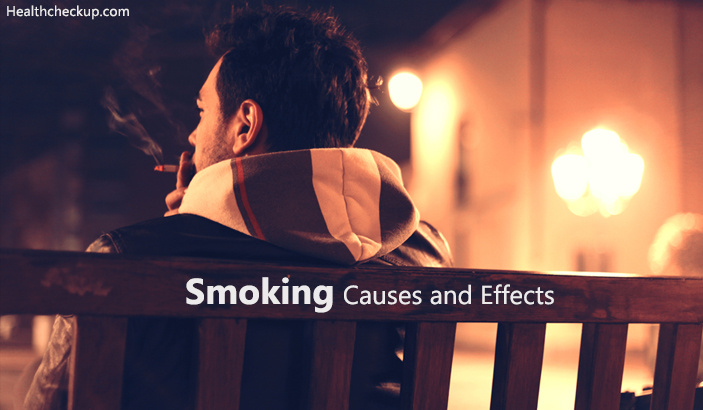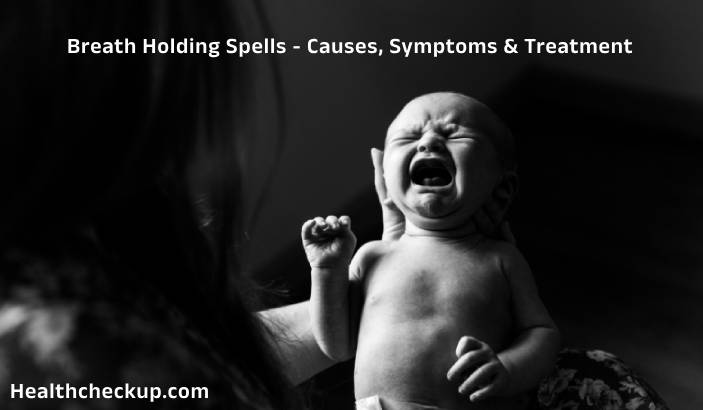The dangers of smoking are known to almost every person in the urban society, and it is known to cause damage to every organ in the body; there are both short-term and long-term effects of smoking. Smoking is directly responsible for a large number of diseases in the body, and smoking is known to shorten the lifespan of a male by about 12 years and that of a female by around 11 years.
Cigarettes are made from tobacco, and tobacco is the only plant known to contain the drug called nicotine. Nicotine is so poisonous that it can kill a person in lesser than an hour if a small amount of it is injected directly into the bloodstream. However, tobacco smoke contains very tiny amounts of nicotine that do not cause immediate death but are still dangerous for the body. Along with nicotine, tobacco smoke contains over 4000 other chemicals that mix together to form a sticky tar. It is this tar that gives cigarette smoke its color and smell. The tar poses danger to the inside of the lungs, as it sticks to the cilia, which are hair-like structures lining the respiratory tract and are responsible for continuously sweeping out germs and dirt. If the cilia remain covered with tar, they will not be able to perform their usual function, and the germs and dirt will remain in the lungs, thus causing diseases, and this is one of the long-term effects of smoking.
Some of the Lethal Chemicals Found in the Cigarette Smoke and Tar, that are Responsible for Cancer and Other Diseases Include:
- Carbon monoxide
- Ammonia
- Nitrites
- Nitrosamines
- Hydrogen cyanide
- Vinyl chloride
- Volatile alcohols
- Formaldehyde
- Sulphur compounds
- Hydrocarbons
- Urethane
- Hydrazine
What are the Immediate Effects of Smoking?
While many smokers are only aware of the long-term effects of smoking, it is very rare that people realize that the harmful effects of smoking will begin within minutes, and not months of cigarette use.
The First Puff of Smoke is the Most Damaging, and there are Immediate Effects of Smoking Tobacco even in Low or Moderate Doses.
Here are some of the Immediate Effects of Smoking:
- Initial stimulation of the brain’s pleasure centers, followed by reduction in the activity of the brain and the nervous system
- Feelings of mild euphoria and relaxation
- Increased blood pressure and heart rate which take a toll on the heart
- Decreased blood flow to the fingers and toes
- A decrease in the skin temperature due to decreased blood flow in the body
- Decreased appetite
- Feelings of nausea and vomiting, including abdominal cramps because nicotine is known to trigger peristalsis, which is the contraction of the muscles in your digestive system that helps carry out waste. Your first drag could cause you to run to the restroom because of peristalsis
- Coughing and throat irritation due to the smoke
If a Person takes large doses of Nicotine, i.e. more than his body can cope with, he may end up with an overdose of Nicotine, and it will have the following Effects:
• Feelings of faintness
• Confusion
• A rapid fall in the blood pressure and breathing rate
• Seizures
• Respiratory arrest that could lead to death
What are the Short-Term Effects of Smoking?
Tobacco is notorious for being one of the most used addictive drugs, and nicotine is the chemical in tobacco that causes individuals to get addicted. As mentioned earlier, smokers inhale thousands of chemicals along with nicotine when they smoke, and these have many effects on the health of individuals.
Here are some of the short-term effects of smoking:
1.Weakening of the Immune System:
Smoking weakens a person’s immune system and his body’s ability to protect itself from infections and diseases. Smokers are at a higher risk of developing frequent respiratory infections and Type 2 Diabetes. Also, smoking doubles the risk of developing rheumatoid arthritis in individuals.
2.Premature Skin Ageing:
Some of the chemicals in tobacco smoke have the capacity to change the structure of the skin, and this leads to the discoloration and wrinkling of the skin, causing the skin to age prematurely. Additionally, the skin on the fingers turns yellow.
3.Erectile Dysfunction in Men:
This is one of the most frustrating short-term effects of smoking in men. Tobacco causes the narrowing of blood vessels throughout the body, including the blood vessels that supply blood to the penis, thus causing erectile dysfunction in men. Quitting smoking will however help to restore normal sexual function.
4.Decreased Lung Capacity:
Smoking can cause shortness of breath and tightness in the chest. As mentioned earlier, smoking causes an inflammation of the airways and tissues of the lungs, ultimately leading to the buildup of scar tissue. Many years of irritation and inflammation will result in a chronic cough with mucus.
The Other Short-term Effects of Smoking Include:
- Bad breath
- Loss of taste
- A loss in the athletic ability of an individual
- Increased heart rate
- Tobacco addiction
What are the Short-Term Effects of Smoking while Pregnant?
Smoking is a big ‘no-no’ during pregnancy, because smoking is one of the most common causes for adverse outcomes in babies. When a pregnant woman smokes, there is nothing that can protect her baby. Your bloodstream is the only source of oxygen and nutrients essential for the proper development for your baby and his/her organs. Cigarette smoke contains more than 4000 dangerous chemicals, out of which there are at least 60-cancer causing compounds, and it also contains lead and cyanide which have detrimental effects on the development of the baby. So, it is very important for pregnant women to give up their smoking habit, preferably before even conceiving. Here are some of the short-term effects of smoking during pregnancy on the health of the baby:
- Preterm birth
- Restriction of the fetal growth rate
- Low birth weight
- Altered brain structure and decreased brain function at birth
- Heart defect at birth, especially if the mother smoked during the first trimester
What are the Long-Term Effects of Smoking?
As discussed earlier, cigarette smoking has some very dangerous immediate side effects on an individual’s health, so one can imagine the long-term effects of smoking to be graver.
Here are some of the dangerous long-term effects of smoking:
- The tar in the cigarettes coats the inner lining of the lungs and the airways leading to lung and throat cancers
- The carbon monoxide in cigarette smoke reduces the amount to oxygen supply to the brain and may cause a long-term smoker to develop brain damage and stroke
- Cigarette smoking causes the narrowing of blood vessels leading to an increase in blood pressure, which can lead to heart attack and stroke
- Nicotine increases the risk for heart diseases and cause the hardening of arteries over time, leading to a number of circulatory problems
- One of the most well-known long-term effects of smoking is cancer, and smoking can cause cancer of the lungs, the mouth, throat, stomach, pancreas, kidneys, bladder, and the cervix. Smoking may also cause myeloid leukemia which is a cancer of the bone marrow that affects blood cell production
The Other Long-term Effects of Smoking Include:
- The loss of the abilities to smell, taste, and even hear
- Eye cataracts and macular degeneration
- The yellowing of teeth, tooth decay, and bad breath
- Chronic bronchitis
- Asthma
- Chronic cough with phlegm
- Emphysema which is a condition characterized by the loss of elasticity in the small airways called bronchioles that join the tiny air sacs called the alveoli in the lungs
- High blood pressure
- Lowered immunity and increased risk of infections
- Slower healing of body wounds
- Decreased appetite
- Stomach ulcers
- Early skin ageing and appearance of wrinkles
- Lowered fertility in women and increased risks of miscarriages
- Irregular periods and early menopause
- Impotence and reduced sperm production in men
Considering the toll that smoking takes on health, it is best for current smokers as well as former smokers to talk to their doctor and get screened for any diseases caused by smoking. There are many tests for smokers that help evaluate their health condition, and these tests include, spirometry, chest X-rays, CT scans, ECG, screenings for diabetes, and Vitamin D blood test.
What are the Long-Term Effects of Smoking while Pregnant?
Pregnancy is a great time for women smokers to quit smoking as it will help them feel better and they will have more energy to go through the pregnancy. Also, the joy of giving birth to a healthy baby simply outweighs the temporary pleasure you experience from smoking a cigarette. Below are some of the long-term effects of smoking during pregnancy that might persuade you to kick the habit:
- Smoking during pregnancy can stunt the growth of your baby in the womb, and this could lead to negative consequences that could last a lifetime for the child.
- Undersized babies usually have underdeveloped lungs, causing them to be vulnerable to wheezing, asthma, impaired lung function at birth, and bronchitis, and it also triples the risk of sudden infant death syndrome (SIDS).
- Smoking during pregnancy increases the chances of giving birth to a baby with congenital heart defects.
- Women who smoke during pregnancy also risk the baby’s brain development, and children of pregnant smokers are most likely to suffer from learning disorders, low IQs, and behavioral problems.
Medically Reviewed By









